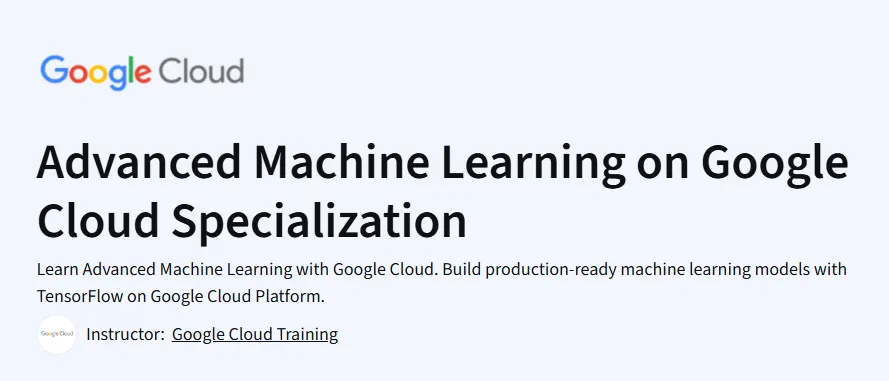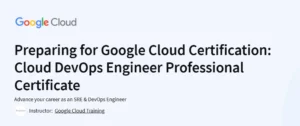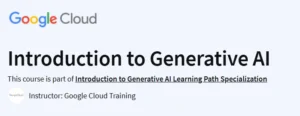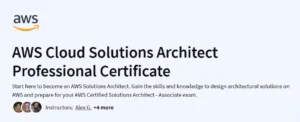What will you learn in Advanced Machine Learning on Google Cloud Specialization Course
Architect and deploy production-grade ML systems on GCP: distributed training, fault tolerance, and model portability.
Develop computer vision and image classification models using TensorFlow on GCP, including data augmentation and CNN applications.
Build NLP models with TensorFlow and Vertex AI: sequence modeling, transformers, and fine-tuning techniques.
Implement recommendation systems using hybrid methods and reinforcement learning (contextual bandits).
Program Overview
Module 1: End-to-End ML with TensorFlow on GCP
⏳ ~18 hours
Topics: Full ML pipeline on GCP; distributed training, model export, scalability strategies.
Hands-on: Qwiklabs-driven labs to build end-to-end TensorFlow pipelines.
Module 2: Production Machine Learning Systems
⏳ ~18 hours
Topics: Static vs dynamic training/inference setups; fault-tolerance and replication patterns.
Hands-on: Deploy and monitor scalable ML systems using TensorFlow and GCP infrastructure.
Module 3: Computer Vision Fundamentals
⏳ ~18 hours
Topics: CNN architectures, image augmentation, performance tuning for small datasets on GCP.
Hands-on: Train and optimize image models, manage overfitting and resource limitations.
Module 4: NLP & Sequence Models
⏳ ~8 hours
Topics: NLP pipelines with LSTM, GRU, encoder-decoder, attention, and BERT-like models on Vertex AI.
Hands-on: Build and fine-tune language models using GCP and TensorFlow APIs.
Module 5: Recommendation Systems
⏳ ~13 hours
Topics: Content-based and collaborative filtering; embeddings; contextual bandits for recommendations.
Hands-on: Implement hybrid recommendation systems optimized for contextual relevance.
Get certificate
Job Outlook
Equips you for roles like ML Engineer, AI Cloud Engineer, or Data Scientist working on large-scale, production ML pipelines.
One of Coursera’s top 10 ML specializations, widely recognized for real-world, hands-on skill development.
Qwiklabs labs reinforce capabilities with scalable GCP deployment and MLOps best practices.
Explore More Learning Paths
Elevate your machine learning expertise and gain hands-on experience with cloud-based AI solutions. These related courses will help you build practical skills in Python, foundational ML concepts, and real-world applications.
Related Courses
Machine Learning with Python Course — Learn how to implement machine learning algorithms using Python and gain practical coding experience.
IBM Introduction to Machine Learning Specialization Course — Build foundational knowledge in machine learning, including supervised and unsupervised learning techniques.
Machine Learning for All Course — Understand core ML concepts and practical applications without requiring an advanced technical background.
Related Reading
What Is Data Management? — Learn how effective data handling, cleaning, and processing are critical to building accurate and reliable machine learning models.
Specification: Advanced Machine Learning on Google Cloud Specialization Course
|
FAQs
- Yes, Python proficiency is expected, especially with libraries like TensorFlow.
- You’ll write and debug ML code for distributed systems.
- Basic scripting alone won’t be enough; comfort with ML workflows is required.
- Strong coding background reduces lab struggles.
- If weak in Python, consider refresher courses first.
- Some GCP knowledge is highly recommended.
- You’ll manage storage, networking, and compute services for ML.
- Labs assume you can navigate Cloud Console and CLI tools.
- Lack of cloud experience may slow your progress.
- Beginners can still learn, but with extra prep on GCP basics.
- The program is hands-on, with Qwiklabs for real cloud projects.
- Labs cover TensorFlow pipelines, deployment, and monitoring.
- Each module balances concepts with implementation.
- The majority of time is spent coding and experimenting.
- It’s designed for production-grade readiness, not just theory.
- Official estimate is ~65–70 hours across 5 modules.
- Each module takes 8–18 hours depending on difficulty.
- Hands-on labs often take longer than expected.
- Plan 6–8 weeks if working part-time alongside a job.
- Accelerated learners may finish in 3–4 weeks with full focus.





